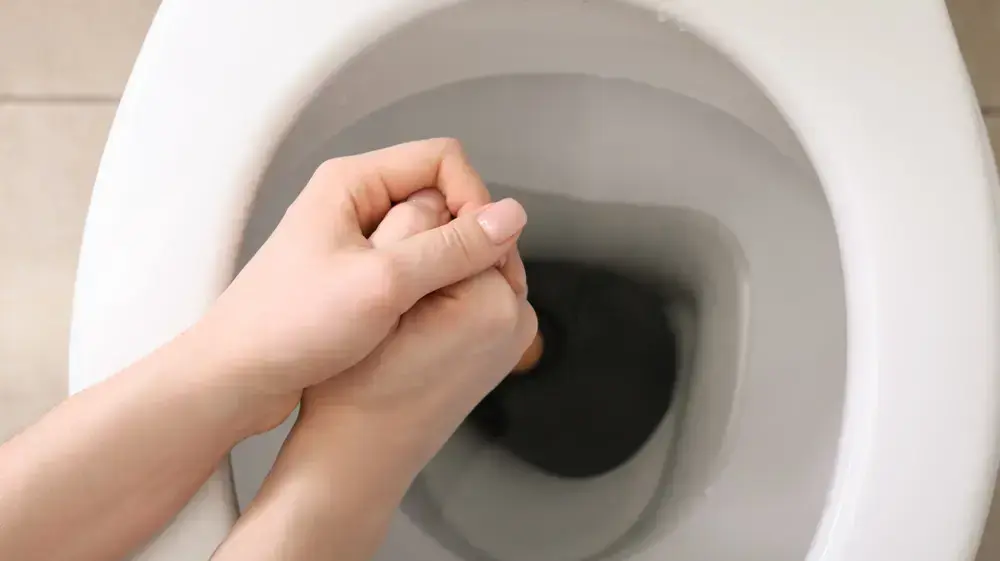Home and design
Order and cleanliness
Clog: These are the things you must not spill in the sink or toilet
From the oil of the schnitzels to the remnants of the coffee machine - all the worst things you wash in the sink or toilet and clog your pipes
Tags
sewerage
plumbing
Jenny Gelman
Sunday, 18 April 2021, 00:02
Share on Facebook
Share on WhatsApp
Share on general
Share on general
Share on Twitter
Share on Email
0 comments
"Consumable wipes" - enough with this lie.
Clogging in toilets (Photo: ShutterStock)
You have finished frying schnitzels (there is nothing like fresh schnitzel from the pan, eh? Pleasure) and now comes the daily moral dilemma: what do you do with the oil you give in the pan?
Is it emptied into the sink?
Maybe to the toilet?
Gather in a bag and pray that it does not explode in your trap and spill everything?
Pipe blockages are one of the most disgusting troubles there is, it completely disrupts life, often impossible to deal with alone and as a nice bonus: they also tend to be smelly and filthy.
And yet, too many people are draining down to the drainage of their kitchen or bathroom exactly the things that will complicate them in these bundle troubles.
More on Walla!
The design secrets that will make your home always look clean
To the full article
Want to avoid blockages in your home plumbing?
These are the rules you must memorize:
Frying oil
- The ingredients of the oil can damage the drainage system by being greasy.
They stick to the walls of the plumbing in the home / office and can cause a blockage due to their accumulation.
If we go one step further, think also of other greasy foods like butter or sauces based on compounds of fats can also be harmful to the piping.
What to do?
Instead of throwing it in the toilet or sink, you should collect the oil or leftovers in a bag and throw them in the trash.
Under no circumstances pour into the sink.
Fry schnitzels in a pan (Photo: ShutterStock, shutterstock)
Food leftovers
- It is important to know that there is a deck (a kind of glass) in the sink where food leftovers are stored and when they accumulate, the leftovers can cause large blockages.
What to do? First of all install a dense mesh for the sink that can collect all the smallest food scraps. Another option is to throw in the trash or toilet, where the chances of blockages are lower.
Wipes
- Wet wipes do not flush down the toilet and cause a lot of damage to sewage treatment plants as well as blockages in the pipes. The "perishable" wipes also have a similar effect on the sewage network.
What to do? If you already use products such as wipes, tampons and similar products from the same family - throw them in the trash and not in the toilet.
Ground coffee
- If you have a coffee machine at home and you usually throw the ground coffee or even leftover capsules in the sink, these can cause a blockage and even immediate.
What to do?
Coffee leftovers can be taken to compost (fertilizer), but if not, just throw them in the trash.
Install a dense mesh that will catch all food debris.
Drain of kitchen sink (Photo: ShutterStock)
Remedies
- Wastewater can seep into the soil and in most cases reach the irrigation of agriculture.
Residues of drugs can also remain in treated effluents, and can therefore easily reach the effluent with which we irrigate the crop fields and from there to the food we eat.
Once medicines are thrown into the sink, they will inevitably reach the sewer network.
What to do?
Pack in a bag all the medicines that are no longer used or have expired and bring them to a nearby pharmacy.
Facts worth knowing about the sewer system
The toilet
water - the water that is in the toilet regularly actually serves as insulation and prevents the return of the odor from the toilet to us.
The impact of the sewer system
- everything we put into the sewer system ultimately affects the quality of the effluent - the water with which we irrigate the agricultural crop fields.
According to the Water Authority, Israel is experiencing a steady increase in the amount of sewage undergoing treatment, with over 85 percent of it returning to various uses and mainly to agriculture and from there to the food we eat.
In addition, in Israel, 70 percent of the water we use every day goes to the sewer system and here our behavior has a lot of weight.
Jenny Gelman is the head of the communications department at Kendo and a chemical engineer by training
Share on Facebook
Share on WhatsApp
Share on general
Share on general
Share on Twitter
Share on Email
0 comments

